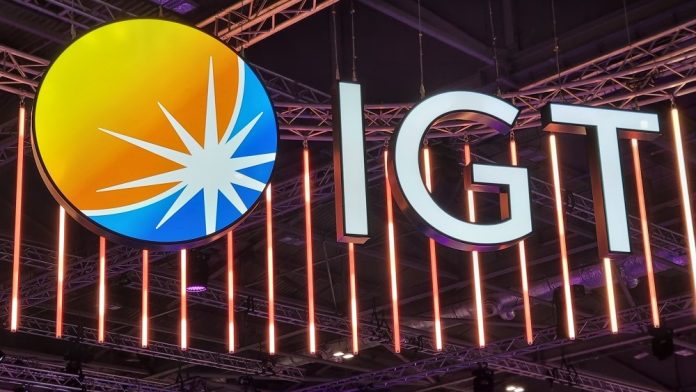IGT has stated it is “on track” to achieve expectations for 2023 following a first quarter where revenue from gaming and digital operations grew compared to the previous year.
Reflecting on the Q1 results, CEO Vince Sadusky noted that the period “exceeded expectations” for the company, adding that momentum in all segments was fuelled by the company’s “compelling innovation and sustained strength in customer and player demand”.
IGT gaming and digital segments mitigate lottery losses
Publishing its Q1 financials, IGT declared a 1 per cent year-over-year increase in revenue to $1.06bn (Q1 2022: $1.05bn) with gains in Global Gaming and PlayDigital segments.
Both Global Gaming and PlayDigital rose by 17 per cent YoY, reaching revenues of $381m (2022: $325m) and $55m (2022: $47m) respectively. However, Global Lottery fell by 8 per cent YoY to $624m (2022: $680m).
IGT stated that gaming revenue improved to $381m thanks to a demand for products driving “double-digit increases in both service and product sale revenue streams, with record first quarter unit shipments and average selling prices, installed base growth, and higher yields”.
Global Gaming’s service revenue rose by 14 per cent to $189m (2022: $165m) while product sales income increased by 21 per cent to $192m (2022: $160m). Installed base units improved by five per cent to 50,902 (2022: 48,379) while machine units sold grew by 15 per cent to 8,272 (2022: 7,176).
Meanwhile, digital income increased to $55m primarily due to “icasino with contributions from the iSoftBet acquisition and organic growth, partially offset by higher jackpot expense”.
The company added that lottery revenue fell YoY to $624m following the sale of Italy commercial services business. Service revenue for the segment dropped by five per cent to $602m (2022: $635m) while product sales declined by 51 per cent to $22m (2022: $45m).
However, IGT noted that considering consistent currency and net of the Italy commercial services sale, revenue grew by four per cent thanks to “strong same-store sales, led by Italy and elevated US multi-jurisdictional jackpot activity”.
Sadusky commented: “Our first quarter results exceeded expectations and put us firmly on track to achieve our full-year outlook.
“Compelling innovation and sustained strength in customer and player demand are fueling momentum across our Global Lottery, Global Gaming, and PlayDigital segments. This is clear in the excellent key performance indicators achieved in the quarter.”
Amortisation improves adjusted EBITDA
Q1’s operating income rose by one per cent YoY to $255m (2022: $252m) with a margin of 24.1 per cent (2022: 24 per cent).
The company’s Global Gaming segment saw a significant rise in contribution, improving by 34 per cent YoY to $69m (2022: $52m) thanks to “strong installed base productivity and operating leverage on a leaner cost structure”.
PlayDigital operating income also increased, this time by nine per cent, to $14m (2022: $13m) with its margin “modestly better than Q4 2022 despite significantly higher jackpot expense”. Meanwhile, corporate support and other expenses came in at a $68m loss (2022: $64m loss) following “higher amortisation expense resulting from changes in currency rates”.
Global Lottery was the only segment to see its operating income drop YoY in Q1, falling by five per cent to $240m (2022: $252m) following an Italian commercial services business sale.
However, the segment reported an operating margin of 38 per cent due to a “high-profit flow-through of same-store sales growth, including elevated jackpot activity, and positive geographic mix”.
IGT declared an adjusted EBITDA of $449m for Q1, a four per cent increase YoY (2022: $433m) and a margin of 42.3 per cent (2022: 41.2 per cent) due to the operating income figures mentioned and “higher depreciation and amortisation”. These adjusted EBITDA figures are among the highest levels in the company’s history.
Free cash flow is up by 88 per cent to $217m (2022: $115m) while its net debt has decreased by 12 per cent YoY to $5.12bn (2022: $5.83bn) with a leverage of 3.0x, the lowest level in IGT’s history.
Net debt is also down compared to the previous quarter’s amount of $5.2bn.
Q2 and beyond
Looking ahead to Q2, IGT expects total revenue for the period to be approximately $1bn with an operating income margin of 22 to 24 per cent.
As for the full year, the company expects revenue to be in the range of $4.1bn to $4.3bn, an operating income margin of 21 to 23 per cent, cash from operations between $900m and $1bn and capital expenditures of $400m to $450m.
Max Chiara, CFO of IGT, noted: “The strong start to the year includes significant cash flow generation and a further improvement in our credit profile. The continued improvement in net debt leverage reinforces our conviction in accomplishing the lower end of the 2.5x – 3.5x target range by 2025.
“We are focused on enhancing our financial flexibility, being operationally agile, and remaining disciplined with costs, all of which should enable the achievement of our 2025 margin and cash flow targets even in the current uncertain macroeconomic context.”
Sadusky added: “We believe the focused execution of our strategy to grow, innovate and optimise should create significant value as we progress toward our 2025 goals.”











